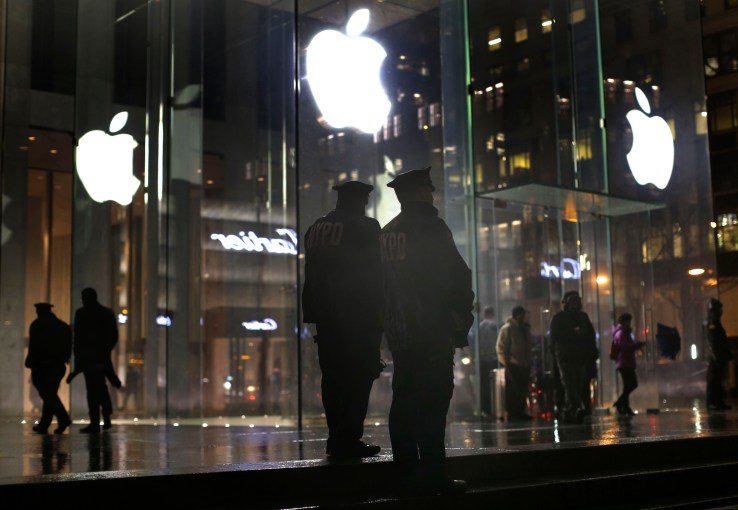Apple denied motions in VirnetX patent case, slapped with a $440M final judgement

Apple lost a retrial a year ago in an ongoing patent dispute with VirnetX over secure communications protocols in FaceTime and other applications, and today the latter company announced the total amount Apple finally will be required to pay up, after the court that heard the case — United States District Court for the Eastern District of Texas — denied all of Apple’s motions filed in the wake of that decision, and affirmed VirnetX’s motions.
According to Virnetx, total final judgement amount will now be $439.7 million, about $140 million higher than previously disclosed. The sum includes the jury verdict of $302.4 million announced last year, additional willful infringement of $41.3 million (upping the royalty rate per device to $1.80 from the $1.20 originally determined a year ago); and interest, costs and attorney fees of $96 million.
Apple has been in touch with us, and a spokesperson confirmed that it plans to appeal this final judgement. (The motions can still be appealed even if the original case was already appealed and lost.)
Similarly, there is another dispute that may sway how this case ultimately goes. Currently all four VirnetX patents in the suit have been invalidated by the Patent and Trademark Office, or its Patent Trial and Appeal Board, or both. This, confusingly, doesn’t actually halt the pace of VirnetX’s patent case: the invalidation is not legally binding until all appeals have been exhausted (and separately that case appears to still be ongoing).
Back in the Eastern District of Texas, VirnetX noted that the court denied all of Apple’s motions: motion for judgment as a matter of law of non-infringement, motion for judgment as a matter of law on damages, motion for a new trial on infringement, and motion for a new trial on damages.
The announcement today appears to finally put to rest a case that has been in progress for about seven years, with VirnetX’s first patent infringement case against Apple filed in August 2010.
One of the significant takeaways from this case is not just the amount that Apple has been ordered to pay, but the precedent that it will set for VirnetX and other companies that are looking to set patent licensing deals — or patent infringment suits — related to security technology.
“We are elated with the Court’s Final Judgement of $439 million in that not only did it affirm the jury’s verdict of $1.20 per infringing iPhone, iPad and Mac Product, but also added for willful infringement, interest and attorney fees. This is the third time a jury has ruled in our favor against Apple,” said Kendall Larsen, VirnetX CEO and president, in a statement.
“This Final Judgement amount is large because sales of Apple’s infringing products are large. The cost of our security technology in infringing devices has been apportioned and is less than a quarter of one percent of the device’s cost. We believe this established per device rate for security is very reasonable and will greatly assist us with our domestic and global licensing efforts.”
Other companies that have lost cases to VirnetX — which is sometimes referred to as a patent troll for the fact that it’s most often in the news because of these suits — include Microsoft (which ultimately paid around $200 million to the company). VirnetX also recently entered into a “patent standstill” deal HTC, specifically related to LTE, which essentially means that the two will not file any suits against each other as they continue to negotiate deals.
While there may be a precedent getting set for what VirnetX believes it can now collect from other tech companies that it claims are infringing on its intellectual property, the case is in another sense a throwback.
The U.S. District Court for the Eastern District of Texas has traditionally been one of the most popular venues for patent cases brought by patent trolls — accounting for between 24 percent and 40 percent of all patent-related cases at different times, in part because of a rapid litigation timetable that is in place in court there (which forces settlements faster, and favors the patent holders). A recent ruling by the Supreme Court, in a case against Kraft Foods, however, determined that patent suits can only be brought now in districts where a company is based, or where it does a significant amount of its business.
Updated with comment from Apple.
Featured Image: Julie Jacobson/AP